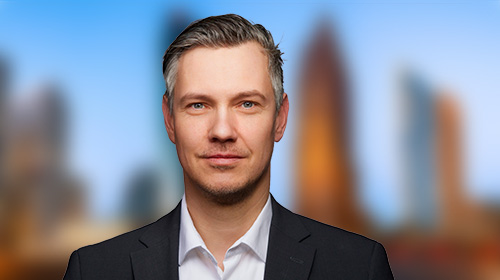Rail technology from Berlin – on the right track
Berlin is known across the world as a traditional center for rail technology. Names like Borsig, AEG and Siemens have left their mark on the history of the railroad and the region alike.
Rail technology is an industrial pillar of the region's economy with a high degree of integration. The entire value chain is represented here by companies that range from mid-sized suppliers to major corporations.
Facts and figures
- Over 100 railway technology companies with more than 20,000 employees
- Home to global players such as Alstom, Knorr-Bremse, Siemens Mobility, Stadler Germany, Talgo Germany, Thales
- Headquarters of Deutsche Bahn AG, the largest private employer in Berlin, with over 27,000 employees
- Berliner Verkehrsbetriebe (BVG) is one of the largest local transport systems in the world and one of the largest employers (approx. 2.9 million passengers daily, more than 16,000 employees, over 137 million kilometers traveled annually)
- Leading international trade fair "InnoTrans" every two years
- High level of expertise in related fields of technology (telematics, automotive engineering, materials engineering, and information technology)
- Close networking between science and industry through centers of excellence
- Strong research landscape (including TU Berlin, HTW, DLR, Fraunhofer Institutes organized in the High-Performance Center for Digital Networking (LZDV))
- Wide range of specialists and managers thanks to specialized degree programs in the field of rail transport technology
- Industry focus: Rail vehicle technology, control and safety technology, passenger information systems, engineering for the digitalization of rail operations, maintenance of rail infrastructure and rail vehicles
- Diverse range of suppliers of railway components
- Construction of the Havelland Railway Technology Campus at the historic site of the former Wustermark marshalling yard
- Berlin Central Station is Europe's largest railway junction
Research environment
Numerous university-based and non-university research institutions offer extensive expertise in vehicle engineering, infrastructure, railway operations, and forward-looking technologies for the rail sector — ranging from fundamental research to applied, practice-oriented development.
TU Berlin - Berlin Technical University
- Institute of Land and Sea Transport Systems
- Department of railway vehicles
Focus areas: Acoustics, Energy & Propulsion, Vehicle dynamics, Passive safety, Telematics & Maintenance - Department of track and railway operations
Focus areas: Automation, Rail Human Factors, Alternative Drives, Risk and Safety - Department of electronic measurement and diagnostics technology
Methods of modeling, signal processing and pattern recognition (machine learning) with focus on AI-based methods for system diagnostics and estimating the remaining service life of mechatronic systems - Daimler Center for Automotive IT Innovations (DCAITI)
Focus areas: Connected and secure mobility, automated and collaborative mobility, high precision digital maps
HTW Berlin - University of Applied Sciences
- Department 1 - Energy and Information
Computer Engineering / Systems Engineering with a focus on: Safe Embedded Systems, Model-Based Systems Engineering, Open Adaptive Systems, Safety Aspects of Artificial Intelligence - Department 4 - Information Technology, Communication and Economics
Focus areas: Industrial Marketing, Transportation, Railroad
Technical University of Applied Sciences Wildau (Technische Hochschule Wildau)
- Faculty of Engineering and Natural Sciences
Focus areas: Mobility and transportation, including transportation systems engineering and aviation logistics; the only full-degree program in Telematics in Germany
Other facilities
- Institute of Railway Technology (IFB Institut für Bahntechnik GmbH)
Business areas: Railroad operation, Railroad networks, Railroad safety technology, Electric railroads, IT products, Rail vehicles, Wheel-rail, Test center “Stationary optical uplift measurement”



